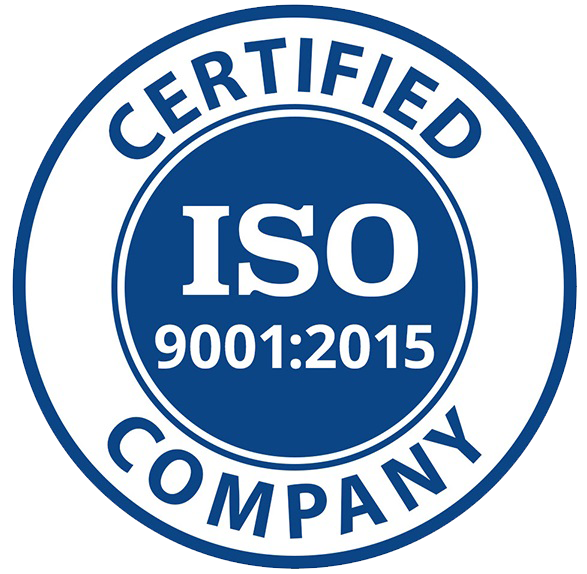
Robotic Process Automation – An ultimate solution
Admin
2023-09-13
0 mins read
ROBOTICS PROCESS AUTOMATION
Robotic process automation (RPA)
Implementation of robotics and/or Artificial Intelligence (AI) to set up consistent automated systems that require minimal human intervention. It’s a software robot which can be programmed to mimic the human actions, to perform a sequence of steps with measurable results.
By using RPA tools like UiPath, Automation Anywhere, Blue Prism, we can record a sequence of actions and playback actions on command, this includes:
- Logging into applications
- Navigating to screens
- Controlling applications with mouse keyboard
- Copying & pasting values between applications
There are numerous benefits which we can achieve by using Robotic Process Automation, few of them are
- RPA solution allows us to automate business processes swiftly.
- We can unlock data-driven insights about our business by maximizing RPA potential.
- RPA and its intelligent automation strengthens our thought process and helps us to perform operations such as office, middle office, back office, Excel, Web UI, Chat and HR automation rapidly with ease.
- Several technical and non-technical operations can be accomplished at an expeditious pace and at reduced cost with maximum accuracy.
- RPA bots use user interface components to capture data and manipulate applications just like we people do.
- Vast variety of repetitive tasks can be achieved by a single trigger.
RPA is more than a trend. It is a different way of thinking about how the business process and its solutions are delivered and managed.
RPA also empowers business employers and knowledge workers and allows business people to focus more on customer-centric business processes. RPA along with human intellect will be responsible to drive business in coming decades.
Enterprises, which know how to automate and manage business processes effectively, will be at the top position in the marketplace. Today, automation drives proven results when it’s come to quality. It reduces full audit trial, reduces compliance and business risks. Human error is eliminated and there is more than 45% increase in the ability of FTEs (Full time equivalent )to focus on customer satisfaction in the area of delivery.
RPA enhances the customer experience and makes business more resilient and operational.
When it comes to cost, business process costs are reduced to 30-80 % driving ROI in quarters vs years. RPA optimizes existing business processes and systems.
DevLabs Alliance can help you to achieve a new level of operational excellence using RPA.
Biggest misconceptions about RPA? What are the RPA benefits?
- Knowing how to position the RPA tool or understanding what and how RPA can help businesses process
- RPA kills jobs
- Implementing the software is time-consuming
- RPA software is a big investment
- RPA never makes mistakes
Here are the top 5 benefits of implementing RPA software for your company.
1) Reduced cost: By automating tasks, cost savings of nearly 30% to 80 % can be achieved. Software robots also cost less than a full-time employee.
2) Better customer experience: RPA enhances the customer experience and makes business more resilient and operational.
3) Lower operational risk: Human error eliminated and there is more than 45% increase in FTEs (Full time equivalent ) able to focus on customer satisfaction in the area of delivery.
4) Improved internal processes: RPA allows for faster internal reporting, on-boarding and other internal activities
5) It does not replace existing IT systems: One of the biggest advantages of using a virtual workforce, or an RPA bot is that it optimizes existing business processes and systems.
RPA Adoption by industries
Industry RPA adoption: There are a number of clients served by RPA vendors.
At the current rate of growth, as per top industry prediction, nearly each and every industry will be using RPA to some extent by 2023.
The emerging RPA technology is widely adopted in various industries such as BFSI, retail, healthcare, and IT & telecom, banking & financial services, Human Resources, manufacturing, insurance, energies and utilities, and among others.
How to select a best Robotic Process Automation tool
This article will help you to understand what kind of underlying applications you’ve for your projects and based on that you can choose the particular type of RPA tools.
If you are the process owner or if you are a part of any RPA team then if you are in a confusion to know which tool to select or which tool to select for my particular process or now what is the way so that I can choose as you know there are so many RPA tools in the market so how do we know which particular tools have to select for my particular process so we’ll explain you to choose best tool for your business requirements.
After going through this article, you will be well-positioned to make right and quick decisions to select RPA tools.
There are so many automation tools in the market, but here are the top 5 RPA tools available in the current market, as per Google:
- Automation Anywhere
- UiPath
- Blue Prism
- Pega
Checklist or parameters to select RPA tools
- Underlying Application: Need to understand the target and underlying applications of the processes to be automated
- Ease of deployment: How easily the RPA tool interacts with application at the presentation layer and how the BOTs can be deployed at different environments
- Control and Monitoring: Need to understand- Real time control, Advanced scheduling & API, Alert and exceptions, real time status monitoring and tracking the logs
- Scalability: Need to understand- how quickly and easily the solution responds to business requirements, changes, exceptions, or increasing operations
- Resource/Pricing Model: Identifying the correct resources and pricing model
It is very important for you to understand these factors or these parameters before you’re choosing the RPA tools. You should understand the type of the applications that are correct and involved in your particular project will have to understand the target target and order by applications of the processes to be automated and the second is deployment.
The three main RPA tools currently in the market are Automation Anywhere, UiPath and Blue Prism. So here we have compared them on the different features and support, so that you are enabled to decide which is the best fit as per your business requirements such as development environment support, production environment support, version control system, Security/Data control, NLP ML etc.
Comparison of RPA tools based on the different features
Above all, these three tools are quite similar in their functioning and structure. But, if learners are new to automation and want to learn how to automate tasks, then UiPath offers a free-edition and it is simple to integrate it into legacy systems in the organization without causing much disruption. There is no prerequisite for programming languages and you can automate a number of repetitive tasks as per your requirement..
Based on the above comparison we can also say that UiPath can be the best fit for maximum business requirements. UiPath also Includes Cognitive Services such as OCR, NLP, Computer Vision, etc. thus eliminating the manual integration of such important services. In reality and past data it’s true that UiPath is the most demanded RPA tool in the market.
I hope this article helped you understand the basics of RPA and RPA tools. If you have any queries or doubts, please feel free to contact us. If you want to learn more about RPA and want to become a RPA certified professional, we at Devlabs Alliance offer Instructor-led live workshop on Robotic Process Automation. You can enroll and get started with our mission Learn, Lead and Succeed.
INQUIRY
Want To Know More
By tapping continuing, you agree to our Privacy Policy and Terms & Conditions
“ The hands-on projects helped our team put theory into practice. Thanks to this training, we've achieved seamless collaboration, faster releases, and a more resilient infrastructure. ”

SkillAhead Solutions

Devlabs is responsible for the most advanced on Webflow and Framer. We help businesses grow with our comprehensive IT training solutions.
USA
1603, Capitol Avenue, Suite 413A, 2659, Cheyenne, WY 82001, USA

`Copyright © DevLabs Alliance. All rights Reserved`
|
Refund & Reschedule Policy
Privacy Policy
Terms of Use


